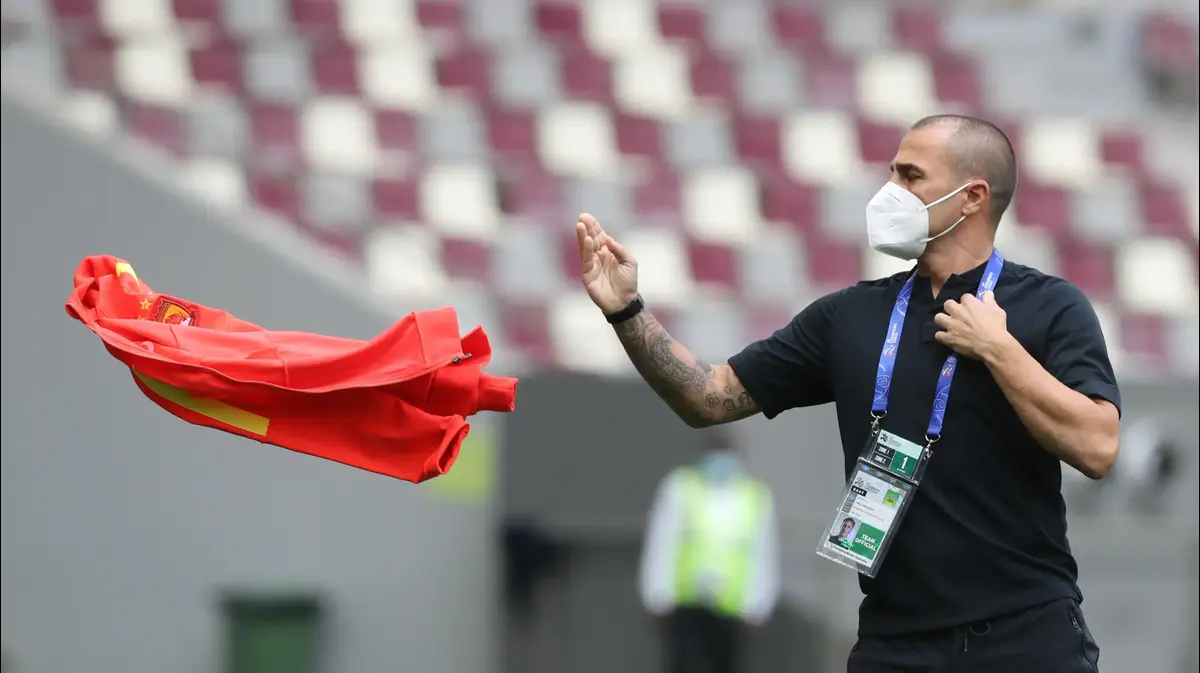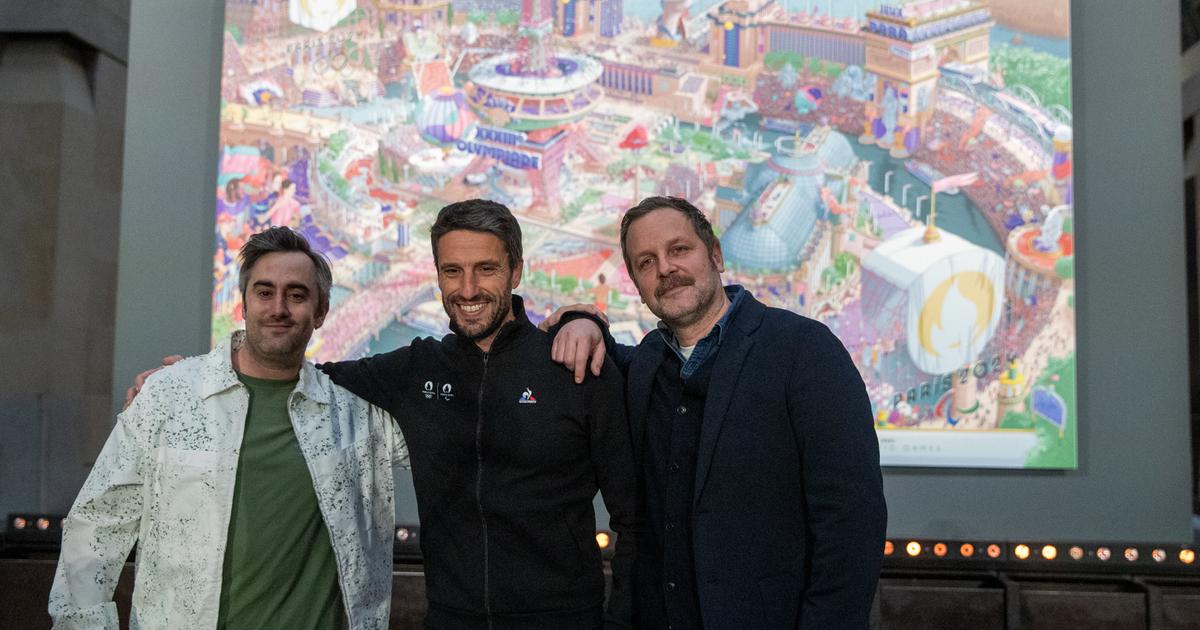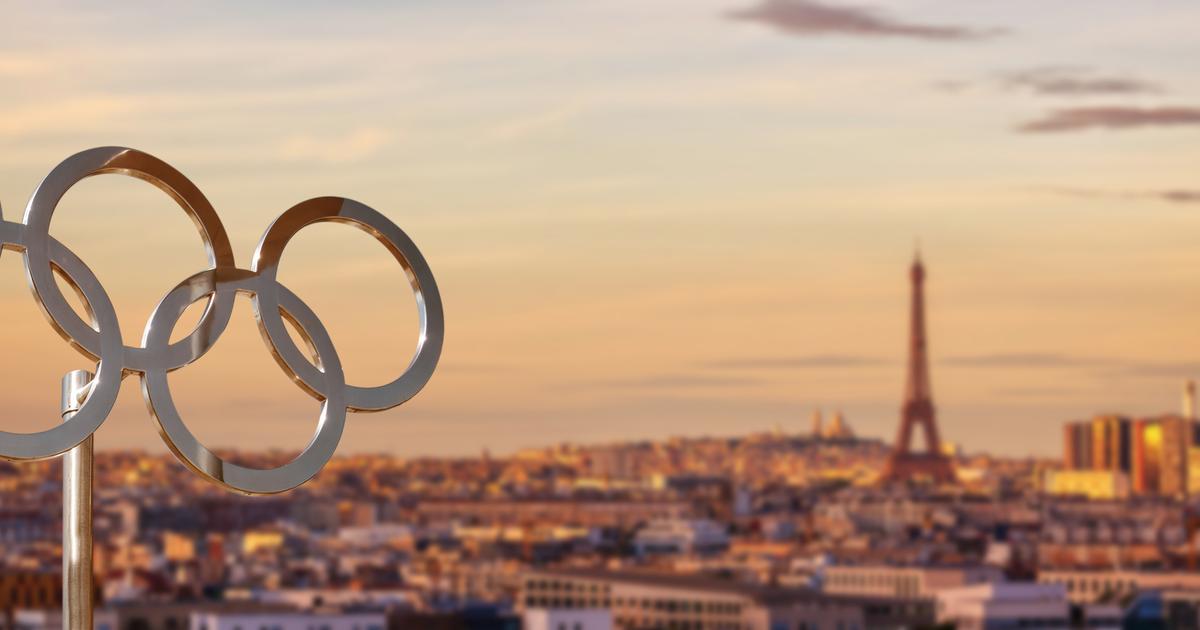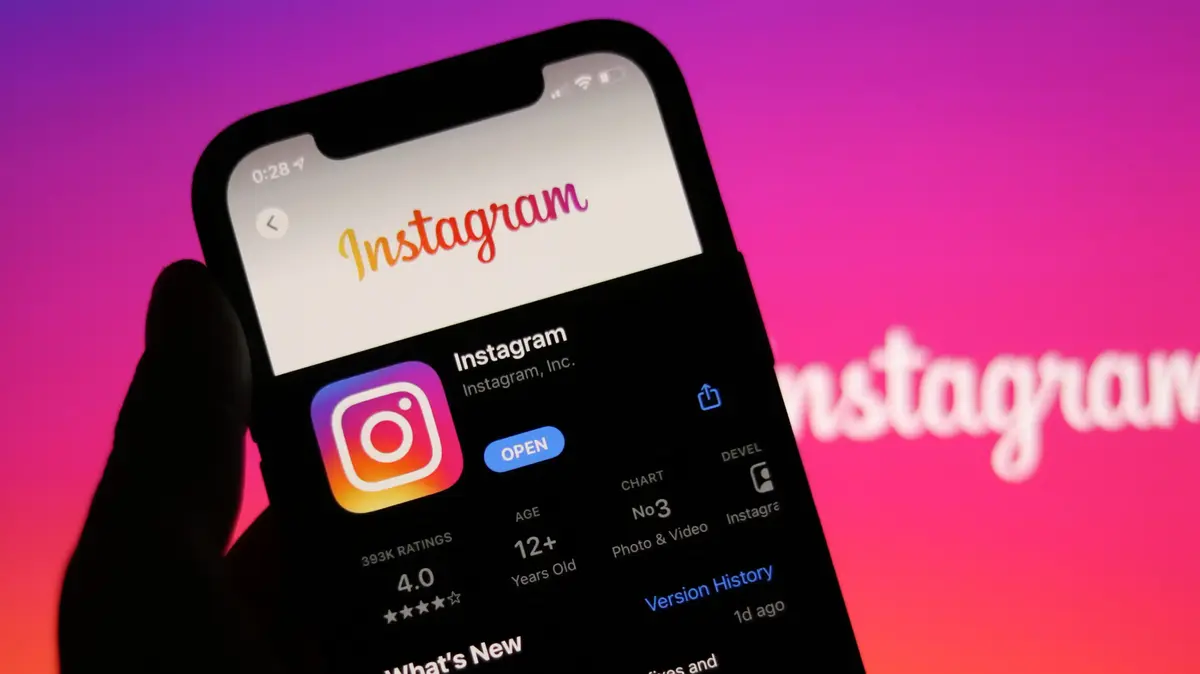"Is Abergrand too big to fall?"
This is the question that employs financial experts all over the world.
Fears of the collapse of a real estate company of this magnitude put stock markets, economists and investors on alert, with comparisons to the collapse of the Lyman Brothers that led to the subprime crisis in 2008. On the sporting side, the Chinese giant's debts threaten to eliminate the country's most decorated club, Guangzhou, Guangdong And completely change the face of the Chinese league.Not just wanted a joke on Twitter - if you buy a Zhuangzhou Evergrand shirt, you can save the world economy.
At the moment the Chinese are only experiencing demolition, and the situation is accordingly (Photo: GettyImages, Greg Baker)
Hoi Ka-yan (also known as Cho Jian), 62, founded Abergrand in 1996.
The group's main business is real estate and it owns over 1,300 projects in more than 280 cities in China. Apart from real estate developments, Evergrand is involved in financial planning, electric car development and in the past also produced water bottles and was even active in the pig breeding market for some time.
She is of course also the owner of the largest football club in China.
Hoy, by the way, was ranked in 25th place in August among the richest people in the world with an equity estimated at about $ 10 billion.
To finance its investments, the company, which in 2016 entered the Fortune 500, borrowed huge sums. "When the debt burden is heavy, so are the interest rates on the debt. It's fine as long as it is possible, through income and profits, to meet payments, but when there is a slowdown in growth or profitability (or the government limits loans), it's less okay," tweeted financial adviser Sahil Bloom. "Imagine a big snake tightening its grip on its prey. You can try to keep borrowing money to meet payments, but it only fuels the snake ... In the case of Evergrand, the snake tightened its grip in 2020."
Abergrand owes over $ 300 billion, the grip tightens and the air runs out.
The metaphorical serpent sits in Beijing.
New restrictions on the part of the administration got Abergrand into trouble.
"In 2020, the policy of the three red lines (or TLR) was set," Calcalist wrote this week.
"The aim of the policy was to reduce leverage, improve debt coverage and increase corporate liquidity. The policy set three criteria that real estate developers must meet in order to be eligible for access to the loan market: liabilities can not make up more than 70 percent of assets, debt to capital ratio The self should be less than 100 percent and the cash ratio for short-term debt, less than a multiplier of one. "
A red flag for the entire league.
Fabio Cannavaro goes home (Photo: GettyImages, AFP)
Simply put, someone in the administration decided to put an end to the celebration. Abergrand, which was of course also affected by the corona crisis, sent a letter to the administration warning that it would not be able to meet interest payments as early as 2020. This act created a psychological effect of fear. The business began to spin. The share price has fallen by 85 percent in the past year and the value of the bonds has also fallen. To meet the payments, Evergrand has taken a number of drastic steps. She offered her assets, including entire real estate projects at a discounted price to ensure cash flow. She even asked to borrow money from the employees while threatening to cancel the bonus for them. Despite all these actions, she still finds it difficult to meet the interest payments on the debt.
The football club owned by the team is one of the least talked about casualties, although it can be seen as a showy and exaggerated project that reflects the general conduct of the company. Abergrand acquired the football club from the southern Chinese city of Guangzhou in 2010 for a paltry $ 15.5 million. The club was relegated exactly to the second division after a scandal surrounding the sale of games, but thanks to the money that flowed back within one year. In the previous decade, Guangzhou Evergrande has won eight championships and twice more in the Asian Champions League.
Alongside the degrees, it was a wasteful project. Abergrand paid wild transfer fees on Jackson Martinez, Alex Cheira, Holk, Paulinho, Oscar and others. Dario Conca, a not-so-glamorous Argentine player, became the third-highest-earner in the world when he arrived at Evergrande in 2011. The glittering coaches who worked at the club - Marcello Lippi, Luis Felipe Scolari and Fabio Canbarro - also immediately made it to the top of the list of earners in the world. In addition, Evergrand set up the largest football school in Asia with a crazy investment and announced the construction of the largest and most prestigious football stadium in the world that it is not really clear what will happen to it now.
In 2014, Tao-Bao, the e-commerce platform owned by Alibaba giant, bought half of the club's shares, but was forced after a relatively short period to reduce its holdings due to huge losses.
This, too, did not prevent the continuation of the wild journey of extravagance.
Guangzhou Evergrande has in the previous decade been one of the influential forces in the global transfer market.
Evergrand led the Chinese's grandiose vision of becoming a football superpower, causing the mass influx into the league over the past decade.
Abergrand's owner had a vision of his own - to put together an all-Chinese team.
He fulfilled it in 2020 of course thanks to the fact that Abergrand received approval for a citizen of four of its Brazilian stars.
This whole bubble burst in a boom.
Fast forward to the current week, anyone still staying at Evergrande is up for sale, Canbarro's contract was allowed, players were forced to give up premiums, return to training was postponed and it is unclear if the team will ever return for the second half of the season in China.
The group, by the way, reported losses of $ 274 million in 2020.
More on Walla!
Following bankruptcy: Fabio Cannavaro left Guangzhou Evergrande
Who knows what will happen to it now?
Guangzhou Evergrand's new stadium (Photo: GettyImages, AFP)
It is not surprising that the economic collapse of the football club comes just at a time when the Chinese government has changed its approach.
In Beijing they felt like they were being ridden.
Local capitalists who have invested hundreds of millions in local football and various clubs in Europe have been ordered to retreat.
"The problem is that the Chinese government has realized that there will be no economic return on investment nor a sporting return," said Simon Chadwick, a British sports economist.
"China is trying to build muscle and change the balance of power between, say, the Premier League and China because until now, China has been a dairy cow for the Premier League."
As part of the change, the league imposed a salary cap (up to three million euros for a foreign player), which of course made the league a less attractive retirement destination for big names. In addition, the teams ordered the name of the owner / sponsor to be removed from the club name. Thus, Guangzhou Evergrand became Guangzhou FC, while Eran Zehavi's RF became Guangzhou City. Not everyone liked the new directive. As a result of the instruction, five professionals lost their licenses, including the disbanded champion Jiangsu Suning.
The Suning Group, owned by the Zhang family, which owns Inter, has significantly reduced its investment in the Italian champions. Romulo Lukaku has been sold, Antonio Conte has left and the Narazuri are running on a leaner budget. Tony Chia sold his shares in Aston Villa in 2018 and in general, in the last four years, the number of clubs in Europe under Chinese ownership has been cut from 20 to 10. Wang Jianlin sold shares in Atletico Madrid and Ye JiYanmaing was forced to sell Slavia Prague before he was convicted and sent to prison for economic offenses.
"Everyone knows the case of Jack Ma (one of the founders of Alibaba) who disappeared for a period," Chadwick continued.
"It's a common pattern. If the state doesn't like something, it intervenes and then the individual disappears for a period, repeating that he understands the mistake and what he said to do."
In other words, once they realized that the excessive sums were not promoting Chinese football, an order was issued to take a step back.
If there is no profit, there is no confirmation of extravagance.
The Chinese bubble burst.
Days that probably won't come back.
Guangzhou Evergrand celebrates championship in 2019 (Photo: GettyImages)
The Chinese league will not be what it used to be, much to the chagrin of local fans. Preliminary evidence of economic problems could also be found this week in the real estate giant, RF, which owns Guangzhou City and this is probably just the beginning. What about Evergrande? It all boils down to the question we opened the article. to keep alive the football club, decorated, or leave it to try to cope alone with the situation they find themselves in and risking huge economic coming real crisis.
the fear is bigger than the economy. First, against citizens who have purchased properties in projects not yet started to be built, again with regard to companies that do business With Abergrand and could suffer heavy losses and third, a general impact on the entire financial system in China. "Abergrand owes money to 171 banks and 121 other financial entities," Matty Beckink, a financial expert, told the BBC. money. It's a credit crunch. "









